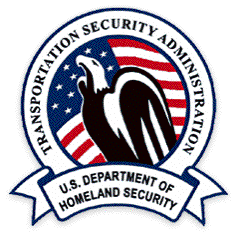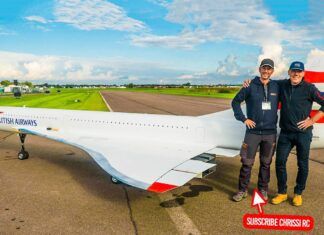TSA Takes Over, Transient Operations Resume
 The Transportation Security Agency (TSA) announced on Thursday it will assume responsibility for ground-security requirements and procedures at the three general aviation airports located within the Washington, D.C., Flight Restricted Zone. The TSA issued an interim final rule that allows transient operations at the three airports — College Park, Potomac Airfield, and Washington Executive Airport/Hyde Field — commonly referred to as the “DC-3.” Since February 2002, the three airports have been operating under Special FAR 94, which expired yesterday, and which essentially closed the airports to aircraft not based there. The GA alphabets responded with positive but muted enthusiasm. Ron Swanda, president of the General Aviation Manufacturers Association, said, “Increasing the amount of transient traffic not only increases the utility of those airports, but helps restore elements of the Washington-area economy that were lost after 9-11.” But he urged the TSA to fully restore GA activity around Washington, D.C., including allowing access to Ronald Reagan Washington National Airport. AOPA President Phil Boyer said, “TSA has cracked open the door at the DC-3, but left the safety chain in place. GA pilots still have to jump through significant, burdensome security hoops, but for the first time in three-and-a-half years, pilots with business in the nation’s capital will be able to use the three closest GA airports.” NBAA President Ed Bolen had similar comments. “NBAA believes the TSA’s ruling represents a positive step,” he said, but added that NBAA will continue working with the TSA to develop an even more streamlined and manageable set of GA security requirements for Washington and across the country. EAA called the changes “a small incremental step in the right direction,” but added, “the pilot vetting and approval process is far too cumbersome. EAA maintains that the process needs to be streamlined and made more efficient.”
The Transportation Security Agency (TSA) announced on Thursday it will assume responsibility for ground-security requirements and procedures at the three general aviation airports located within the Washington, D.C., Flight Restricted Zone. The TSA issued an interim final rule that allows transient operations at the three airports — College Park, Potomac Airfield, and Washington Executive Airport/Hyde Field — commonly referred to as the “DC-3.” Since February 2002, the three airports have been operating under Special FAR 94, which expired yesterday, and which essentially closed the airports to aircraft not based there. The GA alphabets responded with positive but muted enthusiasm. Ron Swanda, president of the General Aviation Manufacturers Association, said, “Increasing the amount of transient traffic not only increases the utility of those airports, but helps restore elements of the Washington-area economy that were lost after 9-11.” But he urged the TSA to fully restore GA activity around Washington, D.C., including allowing access to Ronald Reagan Washington National Airport. AOPA President Phil Boyer said, “TSA has cracked open the door at the DC-3, but left the safety chain in place. GA pilots still have to jump through significant, burdensome security hoops, but for the first time in three-and-a-half years, pilots with business in the nation’s capital will be able to use the three closest GA airports.” NBAA President Ed Bolen had similar comments. “NBAA believes the TSA’s ruling represents a positive step,” he said, but added that NBAA will continue working with the TSA to develop an even more streamlined and manageable set of GA security requirements for Washington and across the country. EAA called the changes “a small incremental step in the right direction,” but added, “the pilot vetting and approval process is far too cumbersome. EAA maintains that the process needs to be streamlined and made more efficient.”
The Transportation Security Agency (TSA) announced on Thursday it will assume responsibility for ground-security requirements and procedures at the three general aviation airports located within the Washington, D.C., Flight Restricted Zone. The TSA issued an interim final rule that allows transient operations at the three airports — College Park, Potomac Airfield, and Washington Executive Airport/Hyde Field — commonly referred to as the “DC-3.” Since February 2002, the three airports have been operating under Special FAR 94, which expired yesterday, and which essentially closed the airports to aircraft not based there. The GA alphabets responded with positive but muted enthusiasm. Ron Swanda, president of the General Aviation Manufacturers Association, said, “Increasing the amount of transient traffic not only increases the utility of those airports, but helps restore elements of the Washington-area economy that were lost after 9-11.” But he urged the TSA to fully restore GA activity around Washington, D.C., including allowing access to Ronald Reagan Washington National Airport. AOPA President Phil Boyer said, “TSA has cracked open the door at the DC-3, but left the safety chain in place. GA pilots still have to jump through significant, burdensome security hoops, but for the first time in three-and-a-half years, pilots with business in the nation’s capital will be able to use the three closest GA airports.” NBAA President Ed Bolen had similar comments. “NBAA believes the TSA’s ruling represents a positive step,” he said, but added that NBAA will continue working with the TSA to develop an even more streamlined and manageable set of GA security requirements for Washington and across the country. EAA called the changes “a small incremental step in the right direction,” but added, “the pilot vetting and approval process is far too cumbersome. EAA maintains that the process needs to be streamlined and made more efficient.”

































